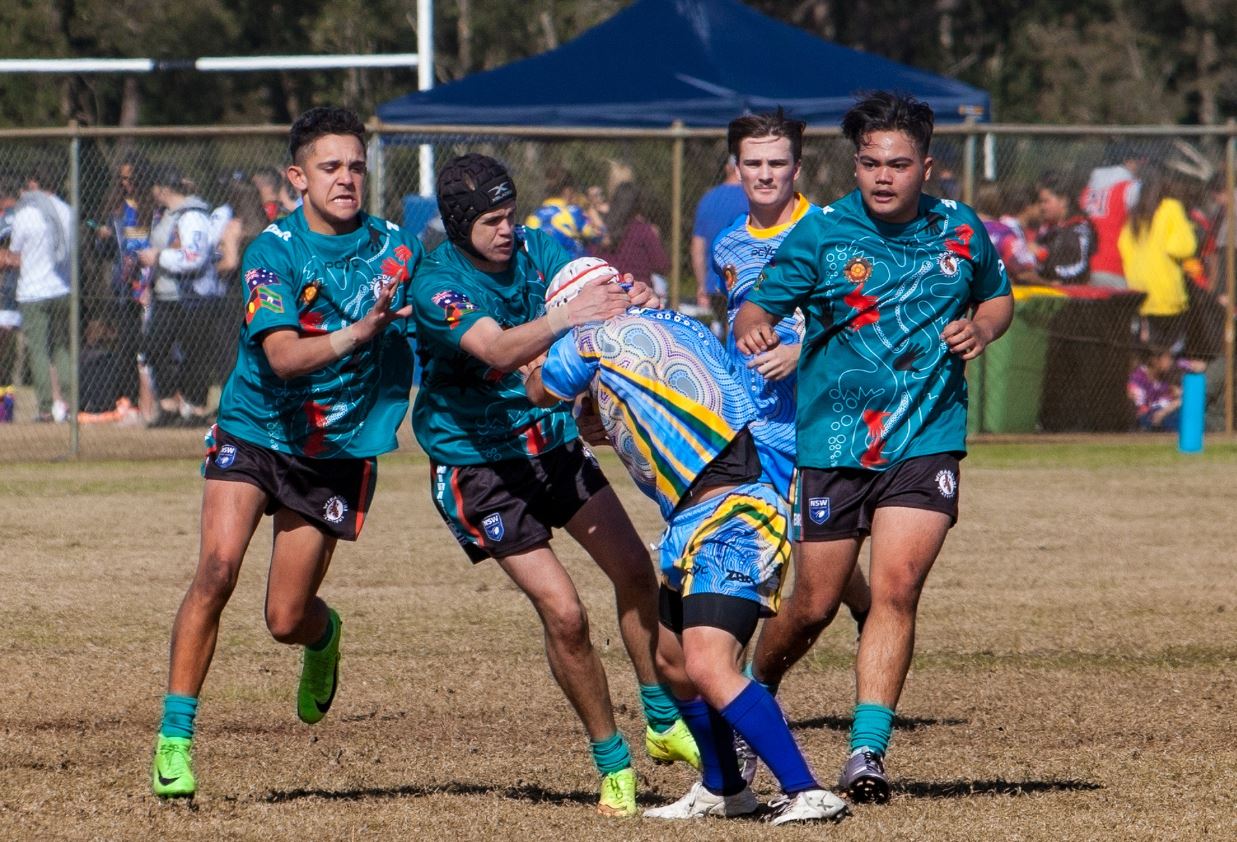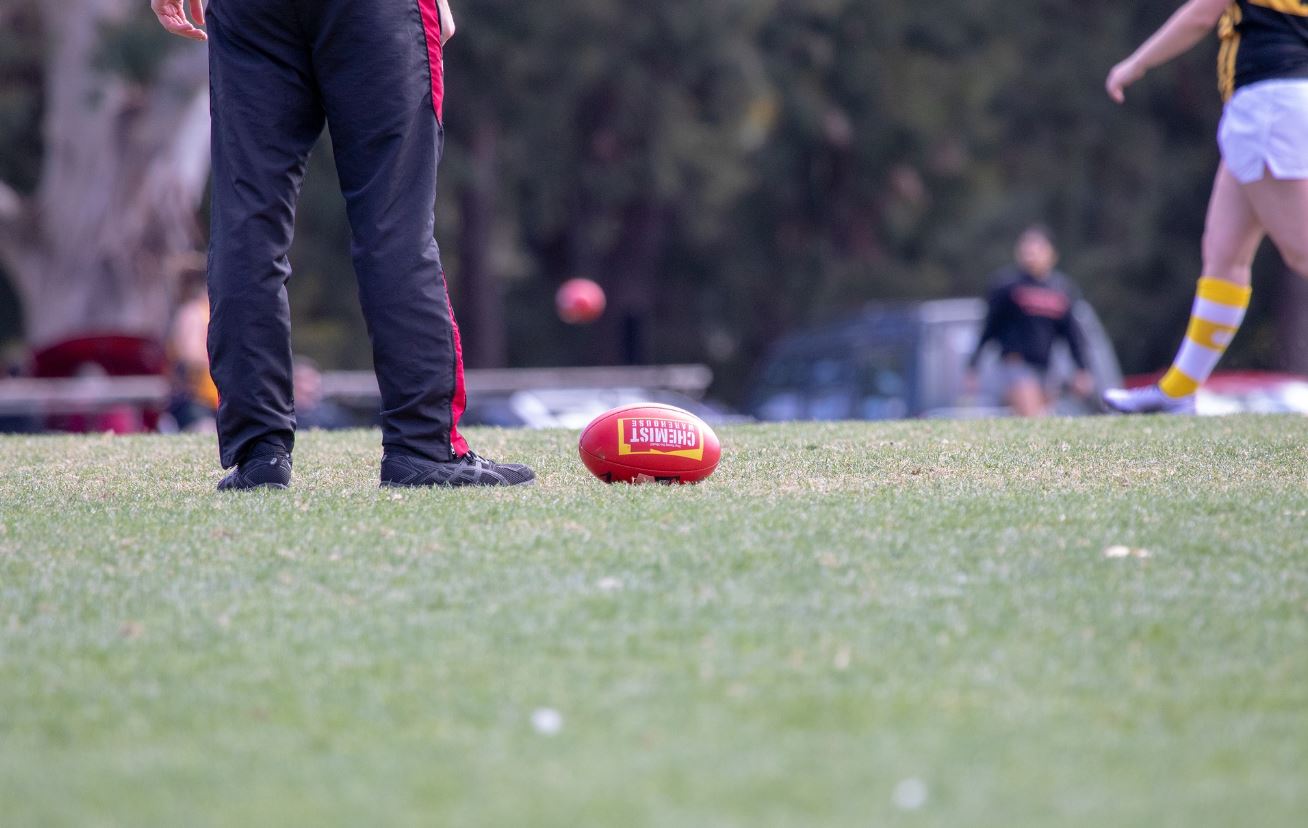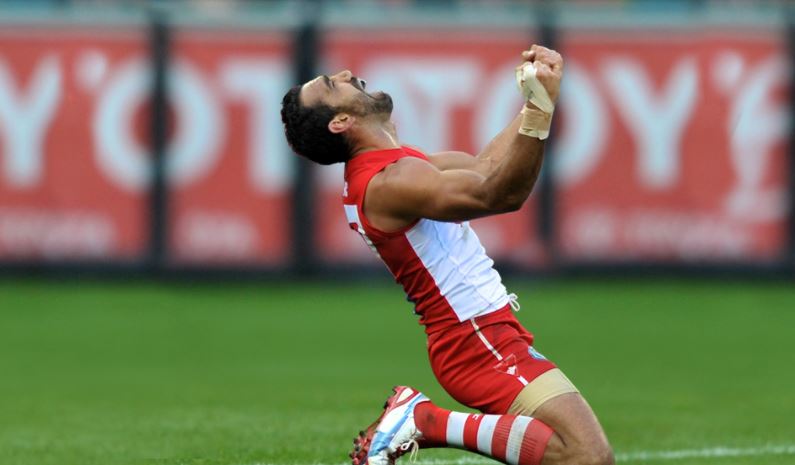
Playing football or rugby gives Indigenous students a chance to “feel proud” of their culture and people, a national study has found.
The Indigenous Australian students were interviewed about their experiences playing AFL or rugby, by University of Canberra, University of Technology Sydney and Flinders University experts, to find out what the sports meant to them, and the role these sports play in further connecting with their culture.
The students said the sports were fun, enabled them to express their culture, provided them with support, and helped them connect with their families and communities. The 12 students came from several different mobs (Aboriginal cultural groups), five different high schools and one college.
One of the authors, Flinders University Associate Professor Shane Pill, says the students considered AFL and rugby “a way to experience enjoyment, kinship, family and community connection and systems of support”.
Big events like the NSW Koori Rugby League Knockout Carnival have become an expression of culture in a similar way to more traditional events.
One of the students, Jack*, said when he watched his mob play at the Knockout or some other competition, it made him “feel proud of my culture and my people”.
A student dubbed Callum said Knockout meant a lot of “blackfellas coming together,” sharing culture, having fun, and competing. He also mentioned his AFL team asking him to design an Indigenous jersey for his team for the Indigenous Round.
Another student, Paul, said the Indigenous Round was a way to express “your mob and what you do with your family”.
Meanwhile, a student dubbed Billy said his favourite thing was “watching the tribes dance before the rugby league games … because they because they show their culture and they show their dance…”

“Everybody goes to the Knockout,” said Jack, “Even if you’re not family, that’s your mob and like you just spend time with them.”
“It’s a family thing, everybody loves to be with each other,” said Billy. “There is a sense of belonging there too. I have heard old aunties say it’s sorta a modern day meeting point.”
Paul emphasised the sports’ importance to him and his family, though in a way that underlined inequity: “if my family didn’t play football” said Paul, “we would literally have pretty much nothing.”
Associate Professor Pill says Paul’s comment reminded him of some of the tensions in the history of Indigenous people’s participation in rugby and football after the British colonised Australia.
“Many British colonisers, who believed themselves more ‘civilised’ than other groups of people, thought sport could be used as a way of ‘civilising’ Indigenous Australians and moulding them to British values,” he says.
“Early on, rugby league and AFL were both used this way, linking them to some painful histories. Many Aboriginal sportspeople continue to face racism.”
However, Associate Professor Pill also points out that, over the years, many Indigenous communities have pushed back against the racist baggage, and made AFL and rugby league their own.”
“As members of one of the world’s oldest living cultures, participants use both sports in ways not originally intended by the British,” he says.
Another student, Katie, said: “When I watch it feels really good because that sport, it’s our sport and its really good to see other people participating in it too.”

Still, Associate Professor Pill believes it’s essential that Indigenous students don’t get pigeon-holed to only playing AFL and rugby due to inaccurate stereotypes, or undervalued in other areas of interest. And, in his view, more needs to be done to combat racism against Indigenous sportspeople. However, he says sport can be an ally in closing the gap initiatives.
An expert on combatting racism through education agrees. Flinders University’s Dr Samantha Schulz, also from the College of Education, Psychology and Social Work, has a new book chapter on a group of pre-service teachers’ responses to The Final Quarter: a documentary on Adam Goodes’ activism and the racism he faced on and off the field, which is available as an education resource on racism.
“A starting point for dismantling racism through education is embedding Indigenous perspectives across the entire curriculum,” says Dr Schulz.
“When we engage with Aboriginal stories like The Final Quarter, everyone’s worldview is expanded. Students can start to rethink the history, organisation, and character of this land we share. We can question the myths that sustain racism, opening to curiosity, humility, and new ways of listening. These are rich platforms for reassessing our beliefs and for rebuilding community together.”
*All names given for participants in the research are pseudonyms to protect their anonymity.
John Williams, Shane Pill, John Evans & Michael Davies. (2020) ‘“ … if my family didn’t play football … we would literally have pretty much nothing”: how high school Aboriginal students continue culture through rugby league and Australian football’ has been published in Sport, Education and Society DOI: 10.1080/13573322.2020.1814716
Sam Schulz, Faye Blanch & Sam Elliott (In press). ‘Across field and classroom: The activism of Adam Goodes and the role of Australian teachers in tackling racism.’ In R. McGrath (Ed), Contemporary Perspectives on Athlete Activism. London and New York: Routledge.
Article by MCERA, an independent, not-for-profit organisation, which promotes education research and researchers in the media to help improve public understanding of key education-related issues in the media.

